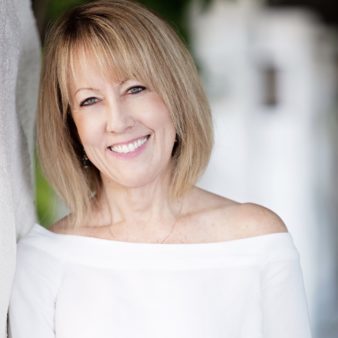Photograph by Jenn Richardson
“Forgive yourself for not knowing what you didn’t know before you learned it.” ~ Unknown
Have you made a mistake or acted less than perfect, and then noticed the voice in your head become loud, blaming and punishing? Meet your inner critic. I believe we all suffer the effects of the inner critic from time to time. Some people may struggle with it more than others based on many factors such as cultural and familial messages while growing up. If you’re in the process of a divorce or some stage of recovery, you may be dealing with an inner critic in overdrive. Developing self-compassion can help you cope with the unrelenting voice of self-punishment, and heal from your divorce.
Voice of the Inner Critic
When going through a divorce, the inner critic loves to stand over you and beat you with a stick, again and again. It might tell you things like:
People in our family don’t get divorced! There’s got to be something wrong with you. Apparently, you don’t know how to make a marriage work. Why can’t you cope with this better?
From where do these messages come? Familial messages such as parental criticism contribute heavily to your future self-talk, and in turn, how you treat yourself. This type of criticism can determine whether you are likely to treat yourself with kindness or contempt.
Add to that the vast array of cultural messages. One such example can be illustrated by the comments, Walk it off, Buck up, or When the going gets tough, the tough get going. These messages later turn into inner criticisms when we feel we let ourselves or others down if we don’t perform to perfection. There are many other examples.
As you think about your divorce, what messages are harped on by your inner critic? From where do those words come?
Developing Self-Compassion
Recently, while leading a conversation about self-compassion in one of my divorce support groups, one member stated, “But, I have to take responsibility for my actions. If I allow myself to be self-compassionate, I am excusing my behavior.” Interesting perception and one shared by many, I’m sure. Self-compassion is misunderstood.
Three elements that make up self-compassion. They are:
1. Self-Kindness
Self-kindness is about taking responsibility for our actions while avoiding self-judgment and blame. It is about extending yourself the same love and consideration you would a friend in any given situation. This is crucial in the healing process. Self-compassion is the voice that soothes and comforts rather than criticizes and judges. It realizes you aren’t perfect and treats you with love and kindness none-the-less.
2. Connection with Humanity
Self-compassion is tied to your connection with humankind. Humans are imperfect beings who make mistakes. Ask yourself, why is it easier to extend compassion to a person outside myself when they have made a similar error? We’re part of humanity, and the same compassion we offer to others must be directed toward ourselves.
3. Mindfulness
Mindfulness is the awareness and acceptance of your present experience, just as it is. You don’t judge painful emotions or circumstances, rather you observe them and let them go. This is how people navigate the calm within the storm during a divorce. It helps you not to get stuck in past or future thinking and allows you to be open and fully present.
Combining these three elements will give you a warm feeling of being fully human, connected to others and mindfully accepting, instead of being driven by the need to be perfect. It may be difficult at first, but you can practice by talking to yourself the way you imagine you would speak to your best friend. Kindness, tenderness and warmth signal to your brain that you are safe, secure and can relax. They are like vitamins for our minds.
Begin the practice of self-compassion, and you will find yourself starting to heal.
Brave hearts. Honor your courage. Honor your knowing.
*Based on The Divorce Recovery Workbook, by Mark S. Rye, PhD., and Crystal Dea Moore, Ph.D.


 Hi, my name is Jamie Daniel-Farrell. I'm a Licensed Marriage and Family Therapist with a practice in Westlake Village, CA. Specializing in couples counseling and divorce recovery, I provide counseling services for individuals and couples who are motivated to create healthier, happier lives and relationships. If you're ready to break out of unhealthy patterns in your relationship, I would be happy to help! Please feel free to reach out or to call me at:
Hi, my name is Jamie Daniel-Farrell. I'm a Licensed Marriage and Family Therapist with a practice in Westlake Village, CA. Specializing in couples counseling and divorce recovery, I provide counseling services for individuals and couples who are motivated to create healthier, happier lives and relationships. If you're ready to break out of unhealthy patterns in your relationship, I would be happy to help! Please feel free to reach out or to call me at: